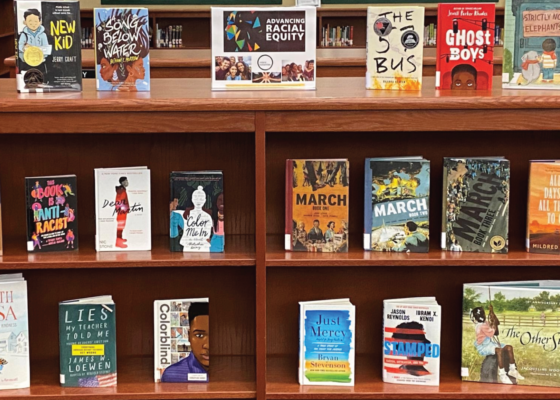Lincoln
April 15, 2016If it weren’t for the photographs, you might think Aeschylus or Euripides had made him up. Or that he was one of those biblical fellows tormented to the brink of…
If it weren’t for the photographs, you might think Aeschylus or
Euripides had made him up. Or that he was one of those biblical
fellows tormented to the brink of what a soul can bear. But there
he stands. Long black coat. Tall hat. Half a beard. Droopy eyes. Ears
large enough to serve several men. Like the offspring of a midwife
and a coroner. A tree impersonating a man. Alongside him, his
generals seem daunted. Anxious for the day they too will grow
into men. Then there’s that odd mix of joy and sorrow etched
across his face. As when a joke hits a little too close to home. Given
all that’s gone on—Gettysburg, Antietam, both Bull Runs, four
long years of war, more than half a million dead, a wife moaning
on the balconies, a child in the grave—Given all that . . . why hasn’t
his hair turned pure white?
—David Shumate (Boone County)
This poem is from Kimonos in the Closet (University of Pittsburgh Press, 2013) and first appeared in Moon City Review. It was also broadcast on The Writer’s Almanac. All rights are controlled by the University of Pittsburgh Press, PA 15260. Used by permission of the University of Pittsburgh Press.

David Shumate is the author of Kimonos in the Closet (2013), The Floating Bridge (2008) and High Water Mark (2004), winner of the 2003 Agnes Lynch Starrett Poetry Prize. His poetry has appeared widely in literary journals and has been anthologized in Good Poems for Hard Times, The Best American Poetry, and The Writer’s Almanac as well as in numerous other anthologies and university texts. Shumate is poet-in-residence at Marian University and a lecturer in Butler University’s MFA program. He lives in Zionsville, Indiana.
Poetry Prompt: Portrait from a Photograph
Find a photograph (or series of photographs) of someone who intrigues you. This person might be someone famous or of personal interest, like an ancestor, a parent, or maybe yourself at a younger age. Study the photograph closely. Search everywhere—especially the person’s face—to discover similes and metaphors, ironies, and any other clues to understanding.
Indiana Humanities is celebrating National Poetry Month by sharing a poem and prompt every day in April. Indiana Poet Laureate Shari Wagner selected these poems and wrote the prompts.


